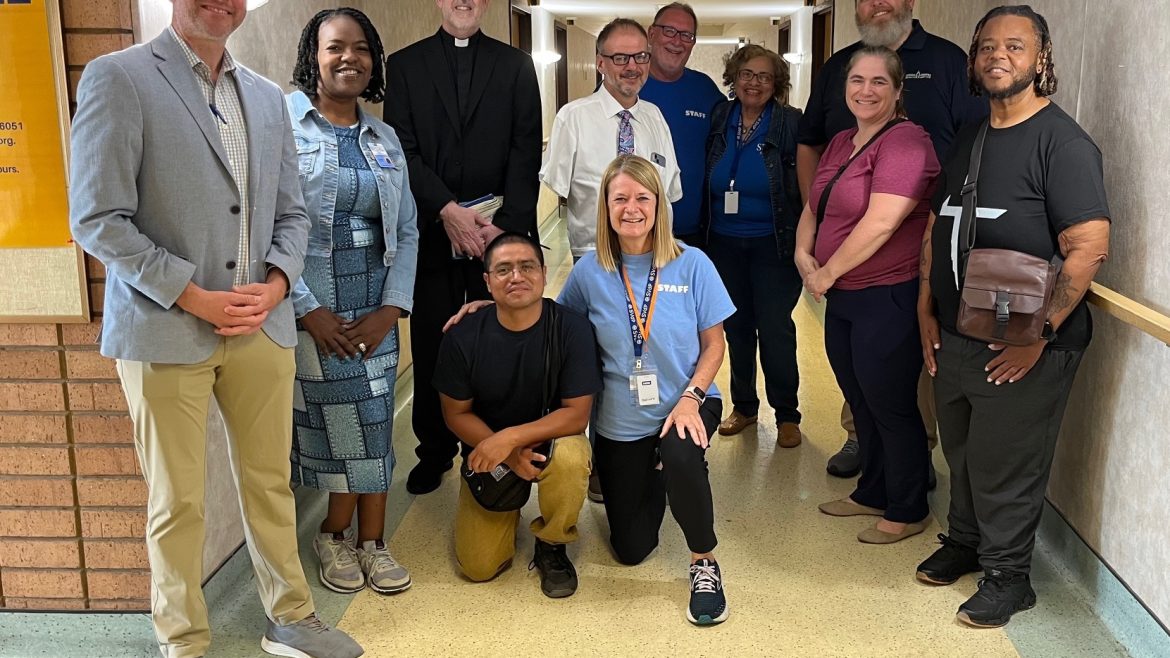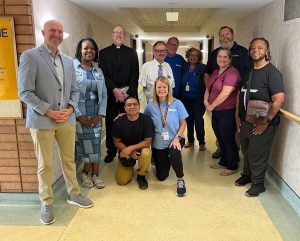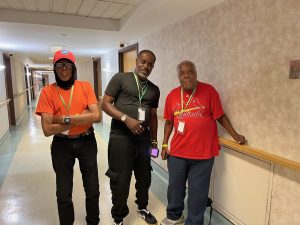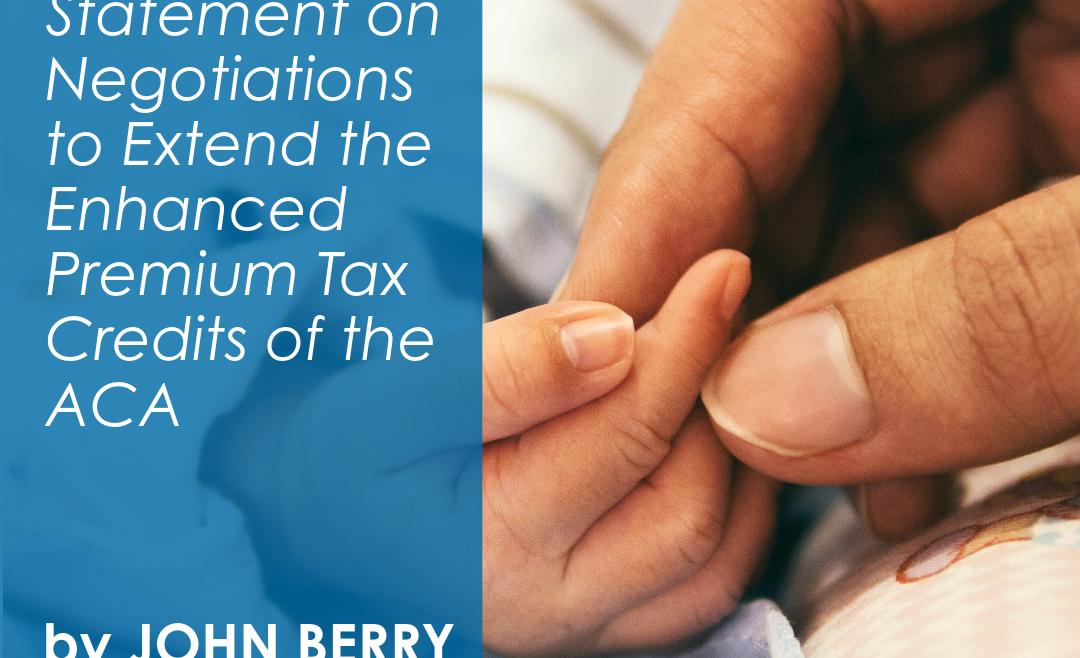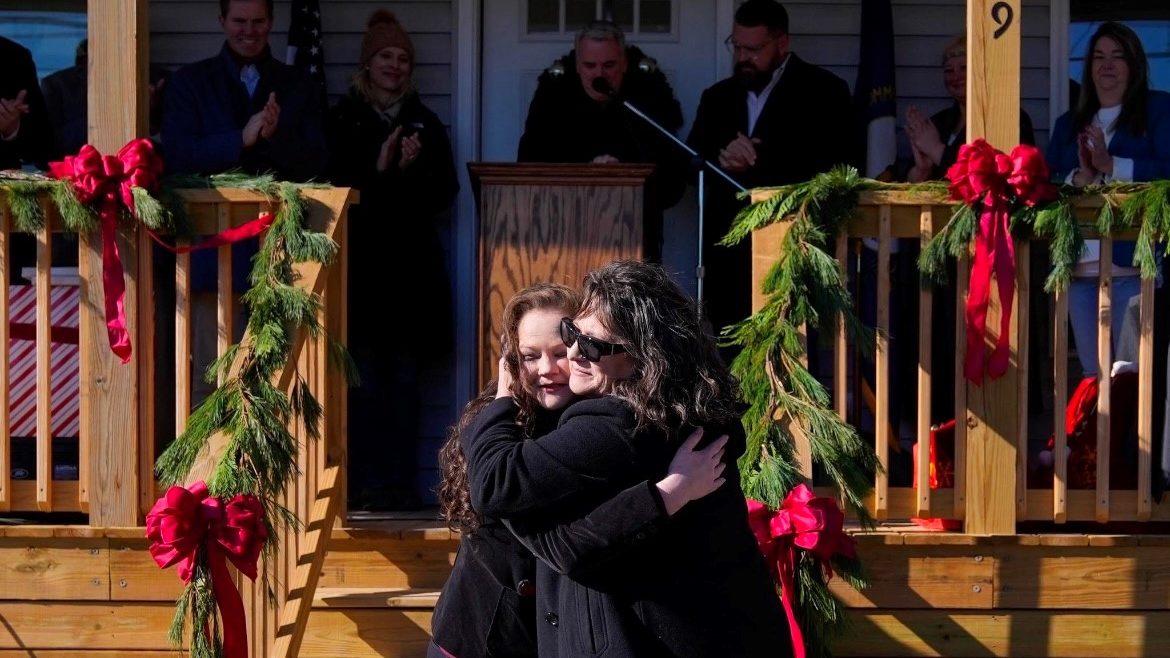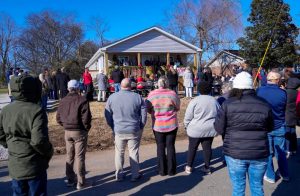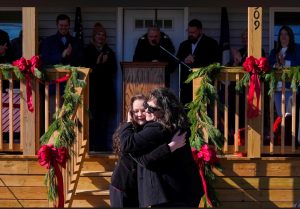The Power of Vincentian Prayer and Action
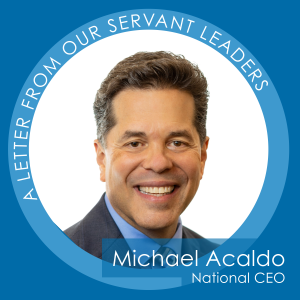
It’s hard to believe that a month and a half of 2026 has already passed. Time goes by so quickly in today’s world, and we all must be on our spiritual toes to keep our focus on our mission.
Our Conferences and Councils are making our Vincentian mission come to life by growing together in friendship and holiness while we serve an ever-growing number of our neighbors in need. Rent, utilities and costs continue to increase at historic levels, which puts additional strain on those we are blessed to serve.
I am so blessed to be in my 38th year of being a part of our mission. The ability to visit around the country has been a great blessing for me to witness Vincentians that are generous with their time, possessions, and most importantly, the gift of themselves in our mission of charity. Thank you for being so generous!!!
As you all know, we are a grassroots organization, so for us, everything starts at the Conference level. At the National Council, our Board of Directors is working so hard for you! Witnessing their dedication to our mission has also been such a blessing to me!
We just had our most recent Board meeting in Dallas which coincided with the 70th Anniversary of the Society in that wonderful Diocese. Our Board was able to meet Council President Harry Storey, Chief Executive Officer Luis Gonzalez, and other Vincentians from around North Texas.
It was great to be there to celebrate with these fine Vincentians. I was blessed to be reunited with a Vincentian that I had not seen in many years – Hank Hermann.
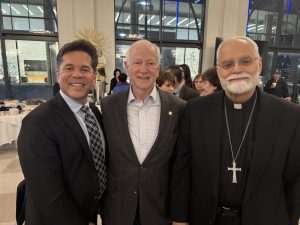
Archbishop Andrew E. Bellisario, C.M. with Hank Hermann and Michael Acaldo
I met Hank over 25 years ago, when he reached out to the Society in Baton Rouge about our Community Pharmacy. Like you, Hank has a Vincentian heart that can’t just make a home visit and be alright with seeing a need and ignoring it. He saw families and the elderly struggling with the question: do I pay my rent or for my prescription medicine?
Because of Hank’s commitment to his “Christian calling to seek and find the forgotten the suffering or the deprived,” he got his brother and sister Vincentians to pray for and support this new special work opportunity!
It was not easy. Hank spent years working with state legislators to establish the legal framework for a freestanding charitable pharmacy that could serve any patient, regardless of their healthcare provider.
Hank was a Voice for the Poor – his efforts enlightened state leaders. He helped change laws so the Society could bring Christ’s love to those in need. Since opening in 2018, the Society’s pharmacy has distributed over $139 million in free prescriptions to needy patients throughout the state of Texas.
Our Board Meeting in Dallas was focused on our future. How can we position every Conference and Council to be even more successful in bringing our Vincentian mission to life? Whether through special works – like charitable pharmacies, motel to home programs, or thrift stores – better use of technology, or success in fund development, the Board’s focus was on the future of our Society.
At the end of our Board meeting, Archbishop Andrew Bellisario, C.M., our National Episcopal Advisor, shared that our relationship with God is so important, and prayer is how we constantly grow closer to Him. He observed the Board’s passion for our mission, and reminded us to always focus on growing in holiness.
After a great meeting in Dallas, I flew down to Houston for a meeting of over fifty SVdP Executives from around the country. These leaders gathered to grow in their spiritual journeys to better serve our Society. It was a wonderful meeting that also focused on the importance of prayer.
Jill Lynch-Sosa, Executive Director of SVdP Omaha, and Ralph May, Executive Director of SVdP Southwest Idaho, (both members of our National Board) did a great job leading this meeting. The meeting kicked off with a spiritual presentation by Bill Gosse, Executive Director of SVdP Green Bay, Wisc. He shared the power of growing closer to Christ each day through an active prayer life.
God has blessed each Vincentian with so many gifts and talents. Thank you all for your work to make our Vincentian mission come to life in your communities!
Inspired by Archbishop Bellisario and our Vincentian leaders, and most of all, by the Holy Spirit, I ask you to pray for our Society and for those we serve. St. Vincent de Paul cautioned that without prayer we “will do little or nothing useful.” Let’s unite our prayers to ask that God would renew our Society and our world in simplicity, humility, meekness, selflessness, and zeal.
Best wishes in Christ,
Michael

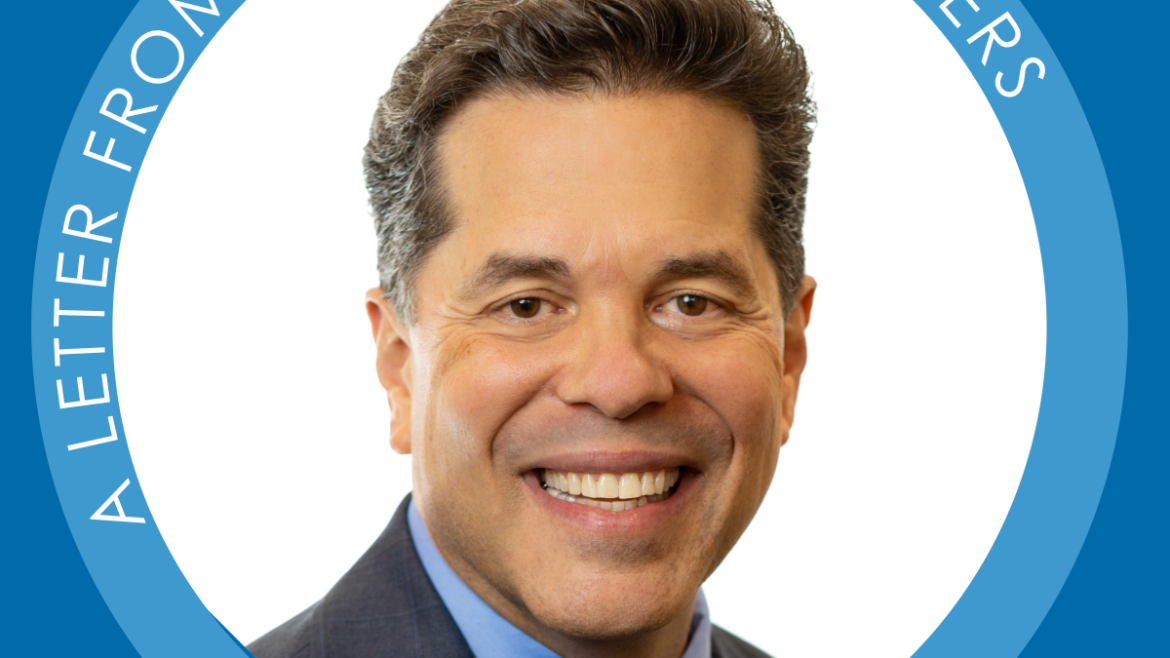

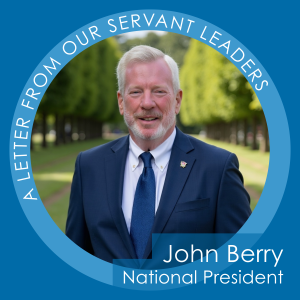

 We’re back in the National Football League playoffs, that short championship season that ends this Sunday in Santa Clara, California. Unlike the Fourth of July or Thanksgiving, Super Bowl Sunday is truly America’s civic high holy day – the one moment each year when we all come together in a vast liturgical celebration of what we most long to be: winners. I spend the two weeks preceding the game listening to sports talk radio or perusing online analyses of the contest. And on the day itself, I tune in to watch nearly the whole broadcast, including the extensive pre-game coverage. The entire spectacle is on view every year: the Via Sacra of Super Bowl Boulevard, the handsome celebrities and preening politicians, the ersatz patriotism, the heart-tugging commercials, and the procession of larger-than-life players into the stadium. There is always the grandiose halftime show, the arrival of the mystical Lombardi Trophy, the euphoric coronation of the victors, and the ritual banishment of the losers. And then, suddenly, the gauzy morning after, the awful truth sets in that the football season is over, leaving nothing but baseball and boredom until late summer.
We’re back in the National Football League playoffs, that short championship season that ends this Sunday in Santa Clara, California. Unlike the Fourth of July or Thanksgiving, Super Bowl Sunday is truly America’s civic high holy day – the one moment each year when we all come together in a vast liturgical celebration of what we most long to be: winners. I spend the two weeks preceding the game listening to sports talk radio or perusing online analyses of the contest. And on the day itself, I tune in to watch nearly the whole broadcast, including the extensive pre-game coverage. The entire spectacle is on view every year: the Via Sacra of Super Bowl Boulevard, the handsome celebrities and preening politicians, the ersatz patriotism, the heart-tugging commercials, and the procession of larger-than-life players into the stadium. There is always the grandiose halftime show, the arrival of the mystical Lombardi Trophy, the euphoric coronation of the victors, and the ritual banishment of the losers. And then, suddenly, the gauzy morning after, the awful truth sets in that the football season is over, leaving nothing but baseball and boredom until late summer.